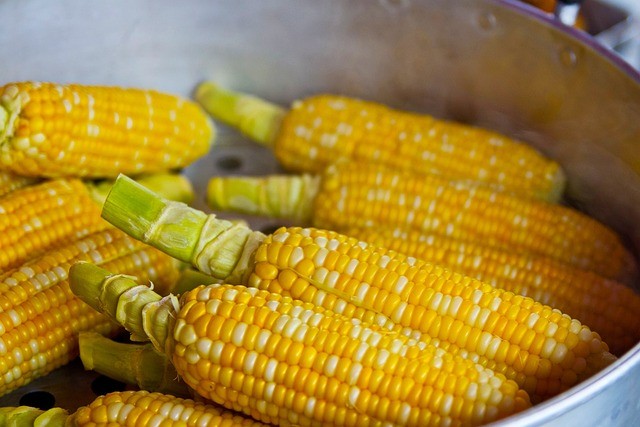Corn, also known as maize, is a popular cereal grain that is consumed worldwide. It offers a variety of essential nutrients, including vitamins and minerals. Here is a breakdown of the key nutrients found in corn:
Vitamins in Corn:
1. Vitamin B1 (Thiamine):
Thiamine is important for converting food into energy and maintaining proper nerve function.

2. Vitamin B5 (Pantothenic Acid):
Pantothenic acid plays a role in energy metabolism and is involved in the synthesis of various compounds in the body.
3. Vitamin B6 (Pyridoxine):
Vitamin B6 is essential for protein metabolism, neurotransmitter synthesis, and immune function.
4. Vitamin B9 (Folate):
Folate is crucial for DNA synthesis, cell division, and is particularly important during pregnancy for fetal development.
5. Vitamin C:
Vitamin C is an antioxidant that supports the immune system, aids in collagen formation, and enhances the absorption of iron.
6. Vitamin E:
As an antioxidant, vitamin E protects cells from damage and supports immune function.
Minerals in Corn:
1. Magnesium:
Magnesium is involved in numerous enzymatic reactions and is essential for muscle function, nerve function, and bone health.
2. Phosphorus:
Phosphorus is crucial for bone and teeth formation, energy metabolism, and various cellular processes.
3. Potassium:
Potassium helps maintain proper fluid balance, nerve function, and muscle contractions.
4. Zinc:
Zinc is important for immune function, protein synthesis, and wound healing.
5. Iron:
Iron is a component of hemoglobin in red blood cells, and it plays a vital role in oxygen transport throughout the body.
6. Manganese:
Manganese is involved in several enzymatic reactions and contributes to bone health.
7. Copper:
Copper is necessary for iron metabolism, collagen production, and antioxidant defense.
8. Selenium:
As an antioxidant, selenium protects cells from oxidative damage and supports the immune system.
It’s important to note that the nutrient content of corn can vary depending on the variety, growing conditions, and preparation methods. While corn offers several beneficial nutrients, it is not a complete source of all essential vitamins and minerals. For a well-rounded diet, it is essential to include a variety of other foods to ensure you meet all your nutritional needs.
Corn is a versatile ingredient that can be enjoyed in various forms, including fresh, frozen, canned, and processed products like cornmeal and popcorn. When consuming corn products, opt for healthier preparation methods, such as steaming or grilling, to retain its nutritional value and avoid excessive added fats or sugars.











